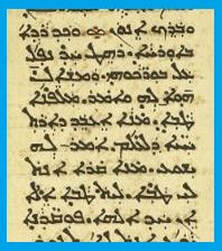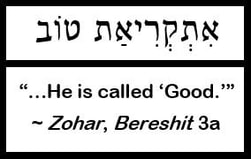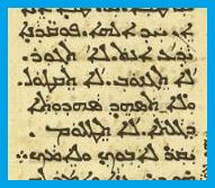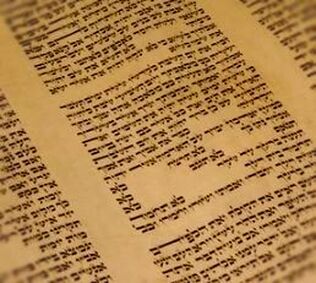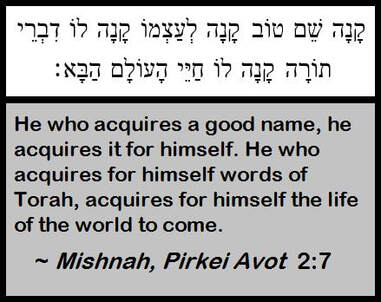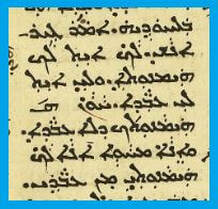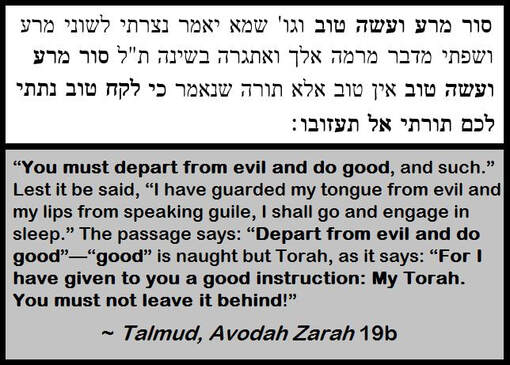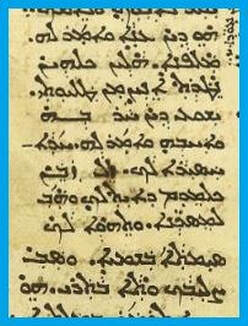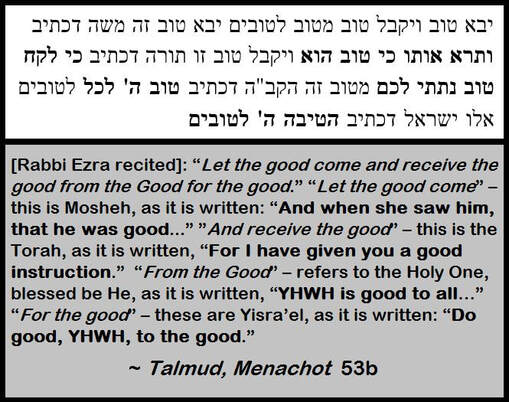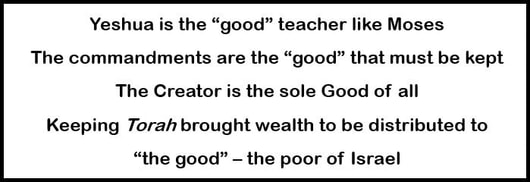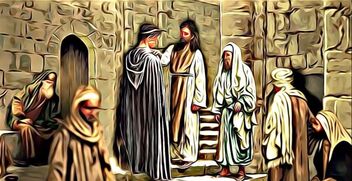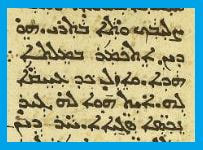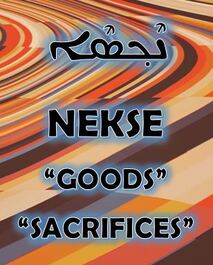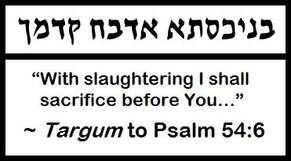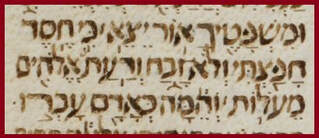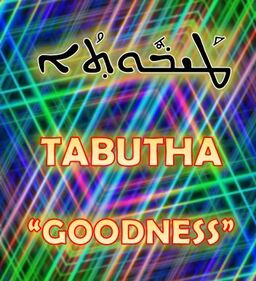WHO IS GOOD
by Jeremy Chance Springfield
8/3/2022
The Gospels record the account of a wealthy young man who came to Yeshua with concern over his own spiritual situation—the “rich young ruler,” as he is popularly called. He sought wisdom and direction from the mouth of the Galilean rabbi whom he held in high regard. The resulting conversation is preserved in all three synoptic texts, and the response Yeshua provides for the young man displays the depth of His own understanding of what matters most in the lives of all who are committed to following the King of Kings.
The account can be found in Matthew 19 and Luke 18, but it is the book of Mark that gives an excellent record of that event, and the stage is set for us in Mark 10:17-18.
This unidentified man shows his respect and the weight of his concern over his own spiritual plight. He refers to Yeshua by the Aramaic title of MALFANA TABA “Good Teacher.”
Yeshua responds by first clarifying the very concept of “good.” The introduction to such a question appears to be an unnecessary complication of an obviously genuine salutation on the part of the wealthy gentleman, but this odd response actually has a purpose that will speak to the upbringing of the man and the spiritual responsibility he holds before the Creator and his own people.
By questioning why the man calls Yeshua “good,” the Messiah hearkens back to the Hebrew Scriptures, where the Creator is referenced as being “good” a total of eighteen (18) different times. Most prominently, Yeshua was potentially even thinking of the words of Psalm 54:6.
By questioning why the man calls Yeshua “good,” the Messiah hearkens back to the Hebrew Scriptures, where the Creator is referenced as being “good” a total of eighteen (18) different times. Most prominently, Yeshua was potentially even thinking of the words of Psalm 54:6.
There is even a tradition in Judaism to call the Holy One “Good.” The Zohar, in Bereshit 3a, says He is called “Good” as a title.
This is all presented in the context of the man’s query: what must he do to inherit eternal life? The seriousness of his question is at its height. Yeshua’s reply to this desire on what must be done to merit eternal life is shared in Mark 10:19.
By responding in this manner with quoting the Torah from Exodus 20, Yeshua highlights the most straightforward answer given in the Word as to how one merits life everlasting: alignment with the commandments of the Torah—a life of obedience to the Creator.
This essential view of the purpose of the commandments is a thoroughly Jewish concept and is particularly expressed with similarly blatant words in the Mishnah, in Pirkei Avot 2:7.
A good name is something of value in the here and now, obviously, and there is nothing wrong with that. However, performance of the Torah is viewed as affecting beyond time and space and reaches into eternity—meriting a place in the world to come with everlasting life!
Obtaining ultimate good is only within the boundaries set by the Creator. This is expressed succinctly in the words of Psalm 16:2.
Obtaining ultimate good is only within the boundaries set by the Creator. This is expressed succinctly in the words of Psalm 16:2.
The only good that is worth possessing beyond this world is the good that comes from connecting to the Holy One. Everlasting life is found in living eternally in the now. This is the sentiment of Yeshua’s own sibling, James. We see that James 2:18 exemplifies the unified nature of our walk of faith: it must be fruitful with deeds of righteousness verifying its legitimacy.
This assertion by Yeshua’s sibling aligns also with the later words preserved in the Talmud, tractate Avodah Zarah 19b, where it quotes from Psalm 34:15 and Proverbs 4:2 to prove its similar claim.
Returning back now to the Gospel account between Yeshua and the wealthy young man, we see the matter continued with the man’s response and Yeshua’s further instructions, as recorded in Mark 10:20-21.
|
20 Yet, he replied, and said to him, “Teacher, these all I have kept from my youth!”
21 And Yeshua gazed at him, and loved him, and said to him, “One is lacking you: you must go, you must sell every thing that is for you, and you must give to the poor, and there shall be for you reserves in the heavens; and you must take up your cross, and you must come after me!” |
The wealthy man answers the mention of keeping the commandments as something he had done from his youth. The way Yeshua reacts to this admission is significant. He did not tell the man he was being legalistic, or trusting in the works he had done, but rather, the text tells us that Yeshua “loved him.” His heart was truly in the right place when it came to worshipping the Holy One in Spirit and truth. Realizing this fact, Yeshua called him to the next step in his spiritual journey to the world to come: he needed only to sell all he had attained and give to those in need, and then follow Yeshua.
This reaction is important because it is not the typical instruction given to others by Yeshua. In other interactions with people of faith, Messiah did not usually demand they give up everything they had to follow Him. In this particular instance, however, Yeshua knew that the man was telling the truth, and that the only matter left needing attention was the wealth he possessed, and so this man was called to a higher calling than so many others with whom Yeshua had interacted.
It may seem odd to request such a life-altering act be done, but in reality, this entire incident was still based on the initial concept the wealthy man had brought up—the notion of “good.”
The best way to explain this reality is to look at an old Jewish saying that is preserved in the Talmud, tractate Menachot 53b.
It may seem odd to request such a life-altering act be done, but in reality, this entire incident was still based on the initial concept the wealthy man had brought up—the notion of “good.”
The best way to explain this reality is to look at an old Jewish saying that is preserved in the Talmud, tractate Menachot 53b.
This ancient proverb conveyed by Rabbi Ezra quotes from Exodus 2:2, Proverbs 4:2, Psalm 145:9, and Psalm 125:4 as proof for its sentiment. This shows the very likely basis for the entire conversation between Yeshua and the wealthy young man. The quote of “Let the good come and receive the good from the Good for the good” is a succinct presentation of exactly what the two men were talking about in the Gospel of Mark.
Consider the explanation of the proverb:
Consider the explanation of the proverb:
This explanation finds its parallel in the situation recorded here in Mark 10:17-21.
Amazingly, the conversation between them follows perfectly the topic of the Semitic proverb recorded in the Talmud!
Understanding the Semitic proverb helps us to better appreciate the entire incident between Yeshua and the wealthy young man. The Creator’s goodness was obviously at work in the man’s life, and Yeshua’s response to his sincere question about direction for his spiritual life encapsulated the concept of that very goodness at work. The man’s commitment to the Word was uncontested, and all that remained was using the bounty of that commitment--his riches—to show goodness to those who were less fortunate than himself. This is why Yeshua commanded the next logical step was selling all he had and giving to the poor—others who did not possess such wealth were not obligated to do so, but this man, being so close to the Kingdom due to his commitment to the Torah and his blessing of wealth, needed only that final piece of the proverb to merit the goodness of everlasting life.
Understanding the Semitic proverb helps us to better appreciate the entire incident between Yeshua and the wealthy young man. The Creator’s goodness was obviously at work in the man’s life, and Yeshua’s response to his sincere question about direction for his spiritual life encapsulated the concept of that very goodness at work. The man’s commitment to the Word was uncontested, and all that remained was using the bounty of that commitment--his riches—to show goodness to those who were less fortunate than himself. This is why Yeshua commanded the next logical step was selling all he had and giving to the poor—others who did not possess such wealth were not obligated to do so, but this man, being so close to the Kingdom due to his commitment to the Torah and his blessing of wealth, needed only that final piece of the proverb to merit the goodness of everlasting life.
Unfortunately, Mark 10:22 presents his reaction.
We are told the man’s many “goods” prevented him from advancing in his spiritual walk at that point in his life. Unable to bear the thought of unburdening himself from all that his Torah observance had so magnanimously blessed him with, he left in distress. Interestingly, the Aramaic term NEKSE “goods” found in the Peshitta text behind the above translation holds a significant detail for this study. While it has the general meaning of “goods” or “property” of some unspecified type, it is also used to refer to an animal that has been slaughtered for the purpose of sacrificial worship at the Temple!
In fact, this term is the very one used in the Aramaic Targum of Psalm 54:6—which has already been quoted from its Hebrew source in this study. The Targum version reads as:
Based on this, one could view the statement in Mark 10:22 that the man had much “slaughtering”—much sacrifices to make. It thus becomes a play on words, essentially, showcasing the difficult situation he found himself in as a very wealthy individual.
This is because the Holy One desires something very specific from His people, as He told us in Hosea 6:6.
This claim shows us that a heart transformed by the work of the Spirit through faith and obedience is a heart that helps other people. Rather than focus on the mere giving of sacrifices to Him, offering kindness to others and the sharing of what you have been given is far more desirable to the Creator.
The Aramaic Peshitta version of the above passage from Hosea 6:6 provides a fitting wording that serves to bring this study full circle.
The Aramaic Peshitta version of the above passage from Hosea 6:6 provides a fitting wording that serves to bring this study full circle.
The Aramaic term TABUTHA “goodness” is merely an inflection of the root TABA “good” that has already been discussed in this study.
The Creator is good—above all others, and He has sent Yeshua as the Mosaic authority to bring people into the proper alignment of a faith-filled observance to the Torah that will lead us into everlasting life. May we see that the Holy One is good, and what He has given us by which to live is good, and the Messiah who directs us in that journey of faith upholds all the good we encounter.
All study contents Copyright Jeremy Chance Springfield, except for graphics and images, which are Copyright their respective creators.

